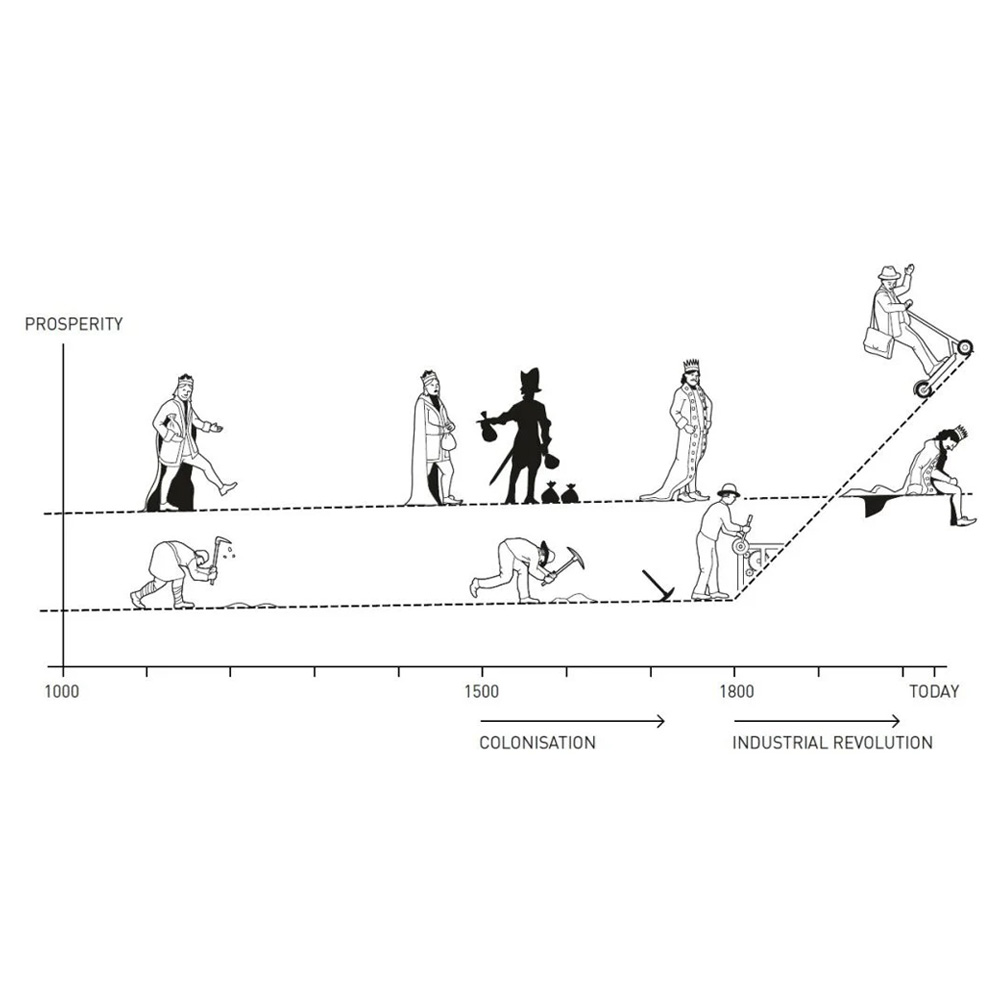Nobel Economics: Get your country to prosper
By Guest Writer posted October 21, 2024 (151 View)
If you want your country and obviously yourself to become rich – heed to the advice from this year Nobel Prize winners for Economics. Daron Acemoglu, Simon Johnson and James Robinson – argue that economic and political institutions - how they are organized and affect the citizens of a society – are pivotal to the making of a rich or poor nation.
You can weigh their hypothesis vis-à-vis your country on the following summary:
1. The three Nobel laureates specifically looked at European colonization. As colonizers settled around the globe, they also set up new institutions that governed opportunities and wealth—access to education and land ownership. The differences between how these institutions operate, whether they are extractive or inclusive, have huge implications for the long-term prosperity of a nation.
In their work, Acemoglu, Johnson, and Robinson make a distinction between “inclusive” political governments, which extend political liberties and property rights as broadly as possible while enforcing laws and providing public infrastructure, with “extractive” political systems, where power is wielded by a small elite.
Relevance to your country:....................
2. As economic growth depends heavily on widespread technological innovation, such advances are only sustained when and where countries promote an array of individual rights, including property rights, giving more people the incentive to invent things. Elites may resist innovation, change, and growth to hold on to power, but without the rule of law and a stable set of rights, innovation and growth stall. “Both political and economic inclusion matter, and they are synergistic…
Relevance to your country:....................
3. The laureates’ explanation focuses on conflicts over political power and the problem of credibility between the ruling elite and the population. As long as the political system benefits the elites, the population cannot trust that promises of a reformed economic system will be kept. A new political system, which allows the population to replace leaders who do not keep their promises in free elections, would allow the economic system to be reformed. However, the ruling elites do not believe the population will compensate them for the loss of economic benefits once the new system is in place. This is known as the commitment problem; it is difficult to overcome and means that societies are trapped with extractive institutions, mass poverty and a rich elite.
Relevance to your country:....................
4. The laureates have also shown that the inability to make credible promises can also explain why transitions to democracy do sometimes happen. Even if the population of a non-democratic nation lack formal political power, they have a weapon that is feared by the ruling elite – they are many. The masses can mobilise and become a revolutionary threat. Although this threat can include violence, the fact is that the revolutionary threat may be greatest if this mobilisation is peaceful, because it allows the greatest number of people to join the protests.
The elite are faced with a dilemma when this threat is most acute; they would prefer to stay in power and simply try to placate the masses by promising economic reforms. But such a promise is not credible because the masses know that the elite, if they remain in power, can rapidly return to the old system once the situation has calmed down. In this case, the only option for the elite may be to hand over power and introduce democracy.
The laureates’ model for explaining the circumstances under which political institutions are formed and changed has three components. The first is a conflict over how resources are allocated and who holds decision-making power in a society (the elite or the masses). The second is that the masses sometimes have the opportunity to exercise power by mobilising and threatening the ruling elite; power in a society is thus more than the power to make decisions. The third is the commitment problem, which means that the only alternative is for the elite to hand over decision-making power to the populace.
Relevance to your country:....................
Source: https://www.nobelprize.org/prizes/economic-sciences/2024/press-release/

